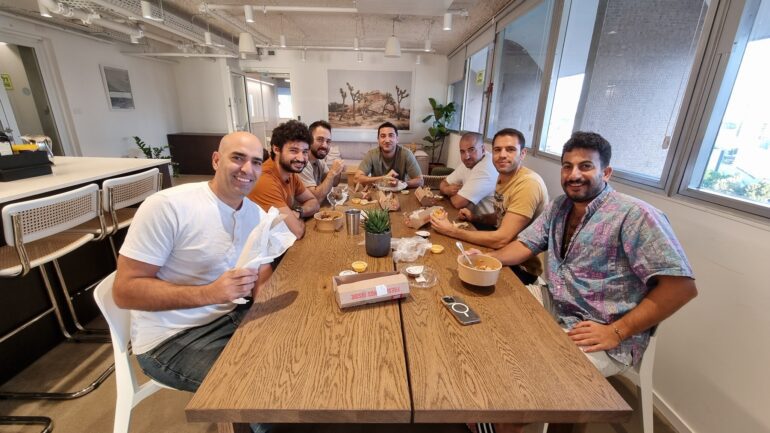TL;DR:
- Israeli Tech Guard, a volunteer group of 200, is fundraising $2 million for AI and computer vision warfare solutions against Hamas.
- Originated post-October seven attacks by Hamas, targeting civilians and causing extensive damage.
- It was founded by Mor Ram-On, Ron Balter, and Lior Mizrahi, experts in tech and defense.
- Developed the ‘Last Seen’ app for the military, aiding in locating missing persons.
- Incorporating emerging technologies like GenAI into military applications.
- Shifting from traditional project management to agile methodologies for rapid deployment.
- Plans include hiring staff and acquiring SaaS services, office space, and equipment.
- Projects include AI for social media analysis, a blood donation app, patient tracking in hospitals, drone attack detection, and moderating online content.
Main AI News:
A collective of 200 Israeli tech volunteers is actively seeking $2 million in funding to advance their artificial intelligence and computer vision initiatives, particularly in creating advanced warfare solutions in response to the current conflict with Hamas. This initiative, known as the Israel Tech Guard, emerged following the October 7 events where 3,000 Hamas militants invaded Israel, causing significant civilian casualties and hostage situations. The organization aims to provide innovative, life-saving technology to Israel’s security and defense sectors.
Israel Tech Guard was established by a trio of tech experts: Mor Ram-On, a seasoned entrepreneur with a background in machine learning and defense tech; Ron Balter, a software engineer at Cybereason; and Lior Mizrahi, a senior programmer and co-founder of Maveriks. One of their notable creations is the ‘Last Seen’ app, utilized by the Israeli military for detailed tracking of missing persons using media content analysis.
Over recent years, there’s been a surge in technology development, particularly in computer vision and GenAI, and Israel Tech Guard is integrating these into military use. Their approach contrasts traditional homeland security project management, focusing on agile methodologies for rapid development and deployment.
Currently, the group aims to raise funds for hiring professional staff, procuring SaaS services, securing office space, and obtaining essential equipment. This team of 200 volunteers, including developers, AI experts, and tech leaders, operates in small, startup-like teams within the organization, focusing on various tech domains such as software engineering, data science, and machine learning.
Recent projects by the group include an AI-driven social media analysis tool for identifying missing persons, a blood donation web app for efficient resource management at Magen David Adom, and various apps for patient tracking in hospitals, drone attack detection, and social media content moderation using generative AI and natural language processing.
Conclusion:
This initiative signifies a notable shift in the intersection of technology and defense, reflecting the increasing reliance on AI and advanced computing in modern warfare. The rapid development and deployment of these technologies by the Israel Tech Guard not only enhances Israel’s defense capabilities but also positions it as a potential leader in defense technology innovation. This could lead to increased investment and interest in the Israeli tech sector, specifically in areas related to security and defense. The successful integration of these technologies might also set a precedent for how other nations approach tech-driven defense strategies, potentially opening new markets for Israeli-developed security solutions.

